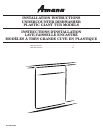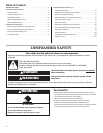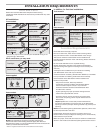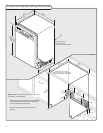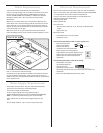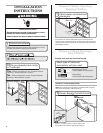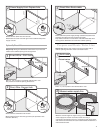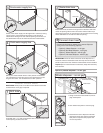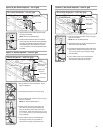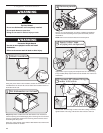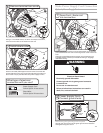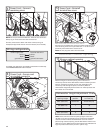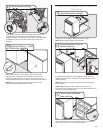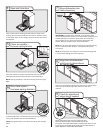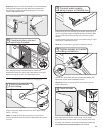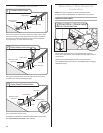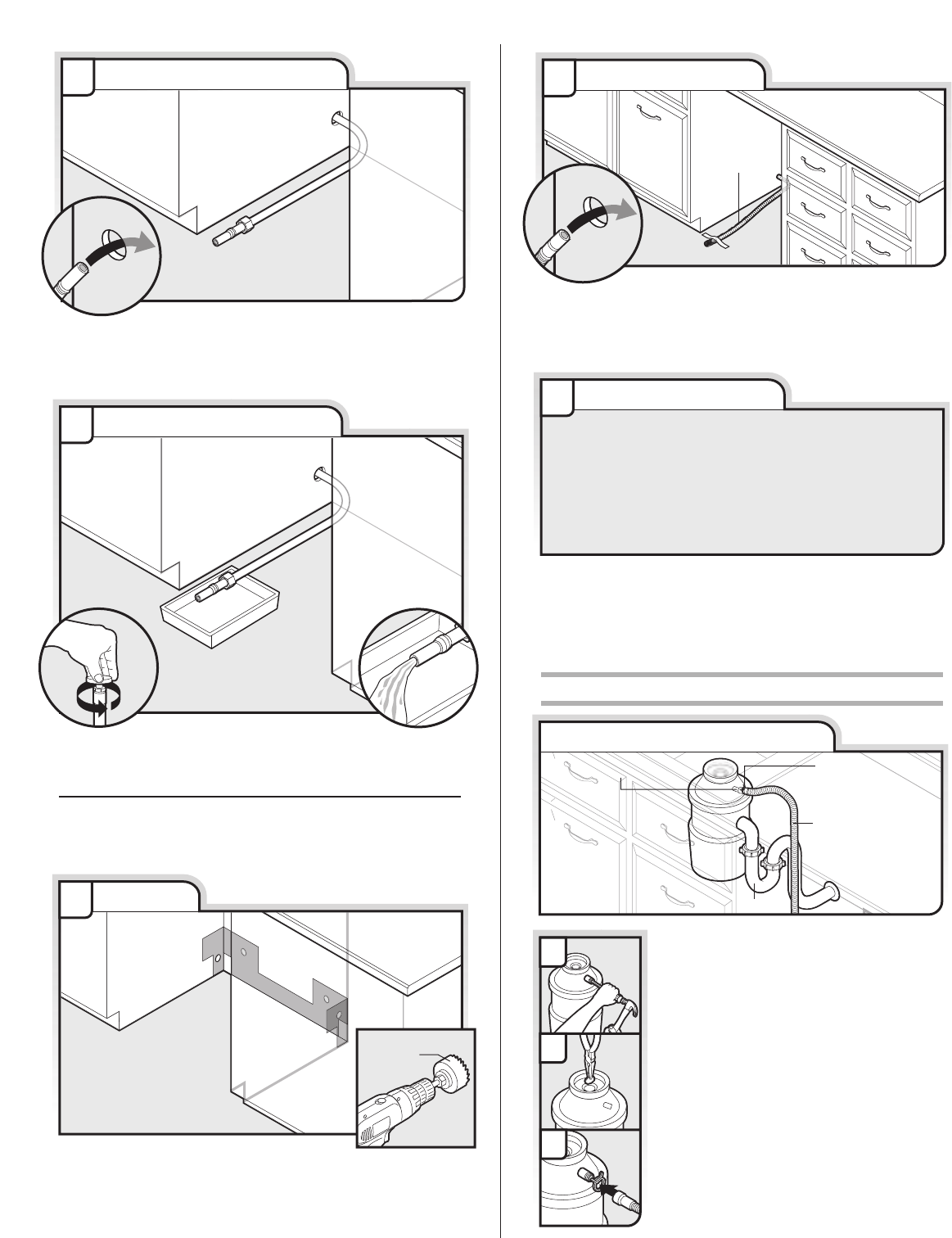
Flush water supply line
4
Slowly turn water shutoff valve to “ON” position. Flush water
into a shallow pan until clear to get rid of particles that could
clog the inlet valve. Turn shutoff valve to “OFF” position.
Drill hole
1
1¹⁄₂"
(3.8 cm)
If needed, drill a 1¹⁄₂” (3.8 cm) diameter hole in cabinet wall or side
of the opening closest to the sink.
8
Connect drain hose to waste tee or waste disposer
using one of the following options:
• Option A, Waste disposer - no air gap
• Option B, No Waste disposer - no air gap
• Option C, Waste disposer - with air gap
• Option D, No waste disposer - with air gap
Connect drain hose
3
Install Drain Hose
IMPORTANT: Always use a new drain hose. Check local codes
to determine if an air gap is required.
Large silver
drain hose clamp
Drain hose
Drain trapDrain trap
Disposer inletDisposer inlet
Waste disposer – no air gap
1. Using a hammer and screwdriver, knock
plug into disposer.
2. Use needle nose pliers to remove plug.
3. Attach drain hose to disposer inlet with
large silver drain hose clamp (provided).
Use pliers to squeeze clamp open and
move into position.
1
3
2
Option A, Waste disposer – no air gap
Drain hose
Route drain hose
2
Route drain hose as shown through hole in cabinet to the front
center of opening where drain connection will be made. Tape
drain hose to the floor in area shown. This will keep it from moving
when dishwasher is moved into cabinet opening.
IMPORTANT: The drain hose connection of the disposer or a
waste tee must be made before the drain trap and at least 20”
(50.8 cm) above the floor where the dishwasher will be installed.
Helpful Tip: To reduce vibration of the hose, keep the hose away
from the floor.
Route water supply line
3
Slowly route water supply line through hole in cabinet. (If using
copper tubing, it will bend and kink easily, so be gentle.) It
should be far enough into the cabinet opening to connect it to
the dishwasher inlet on the front left side of the dishwasher.



